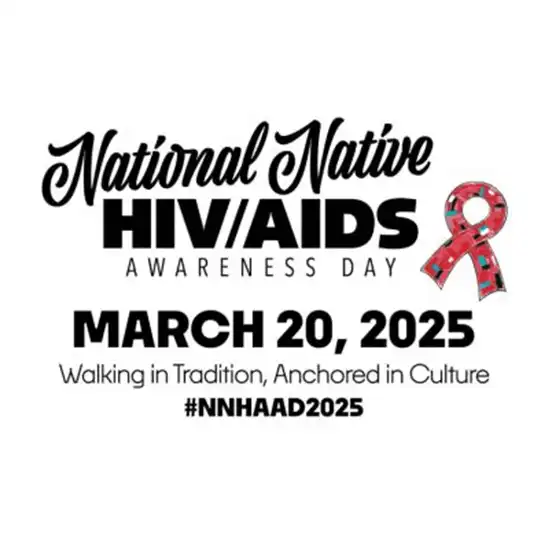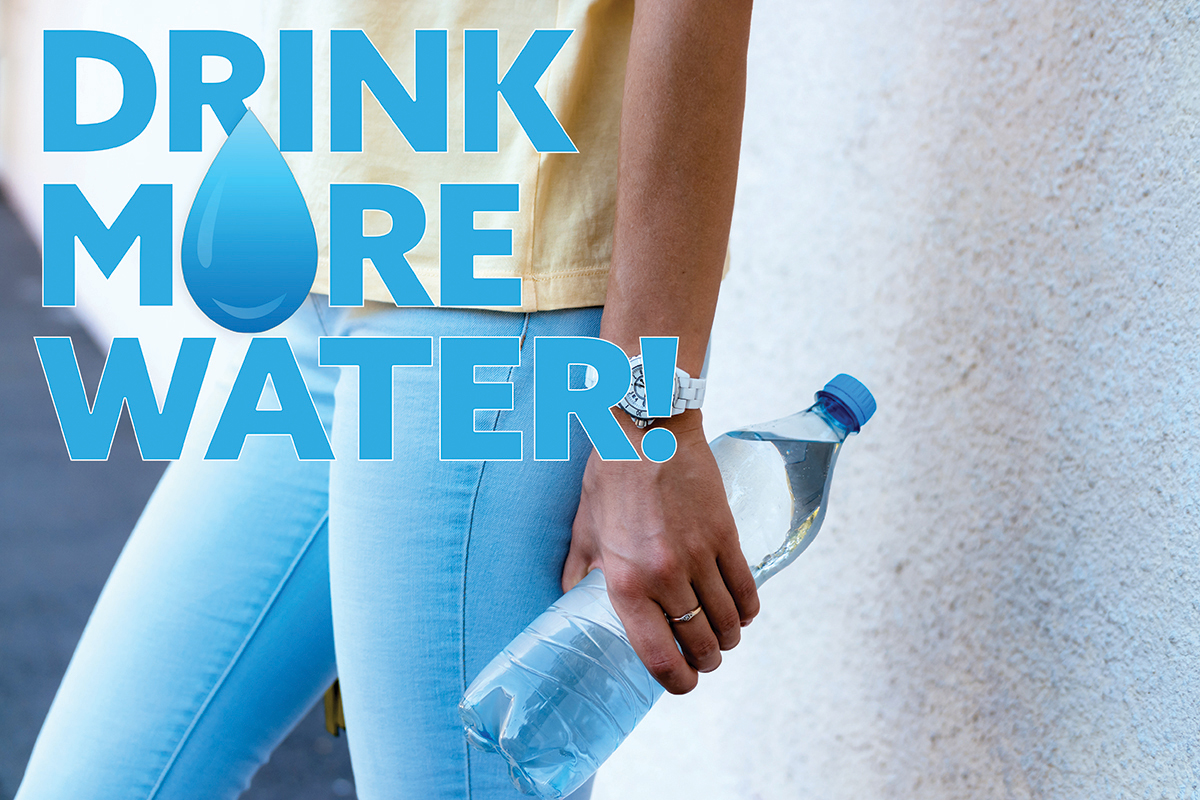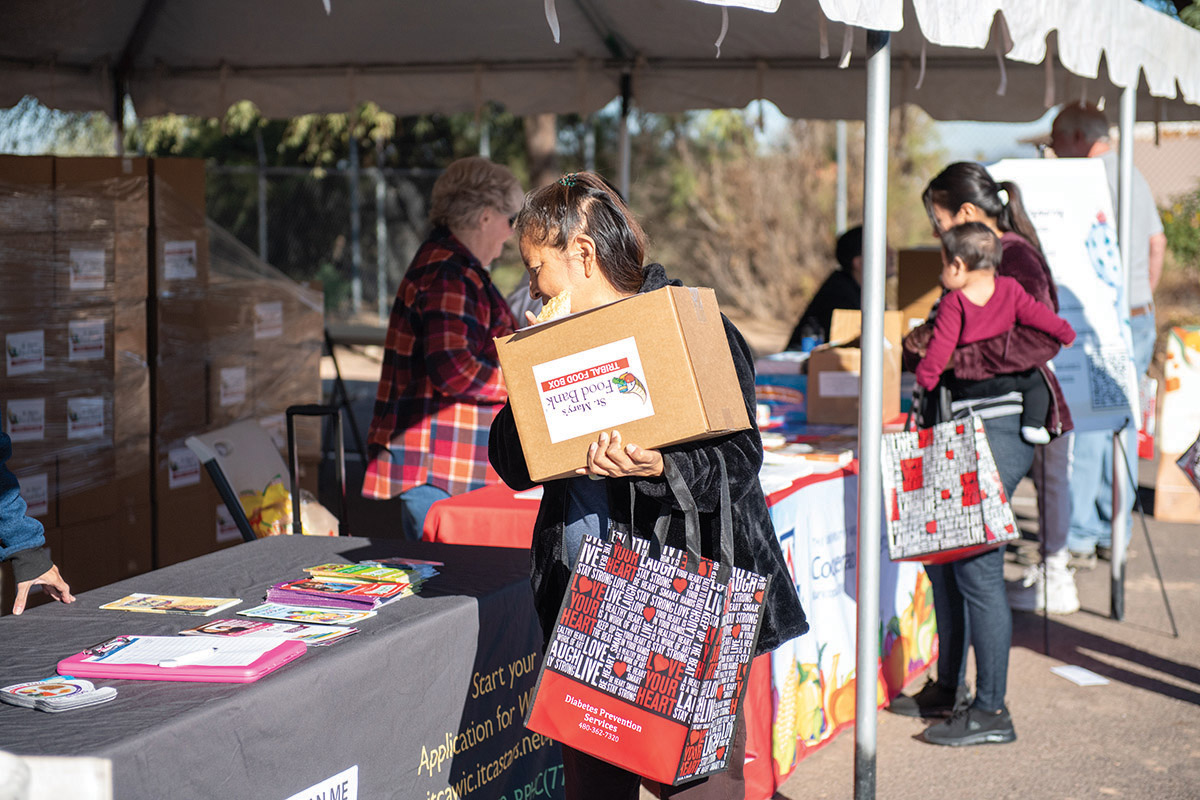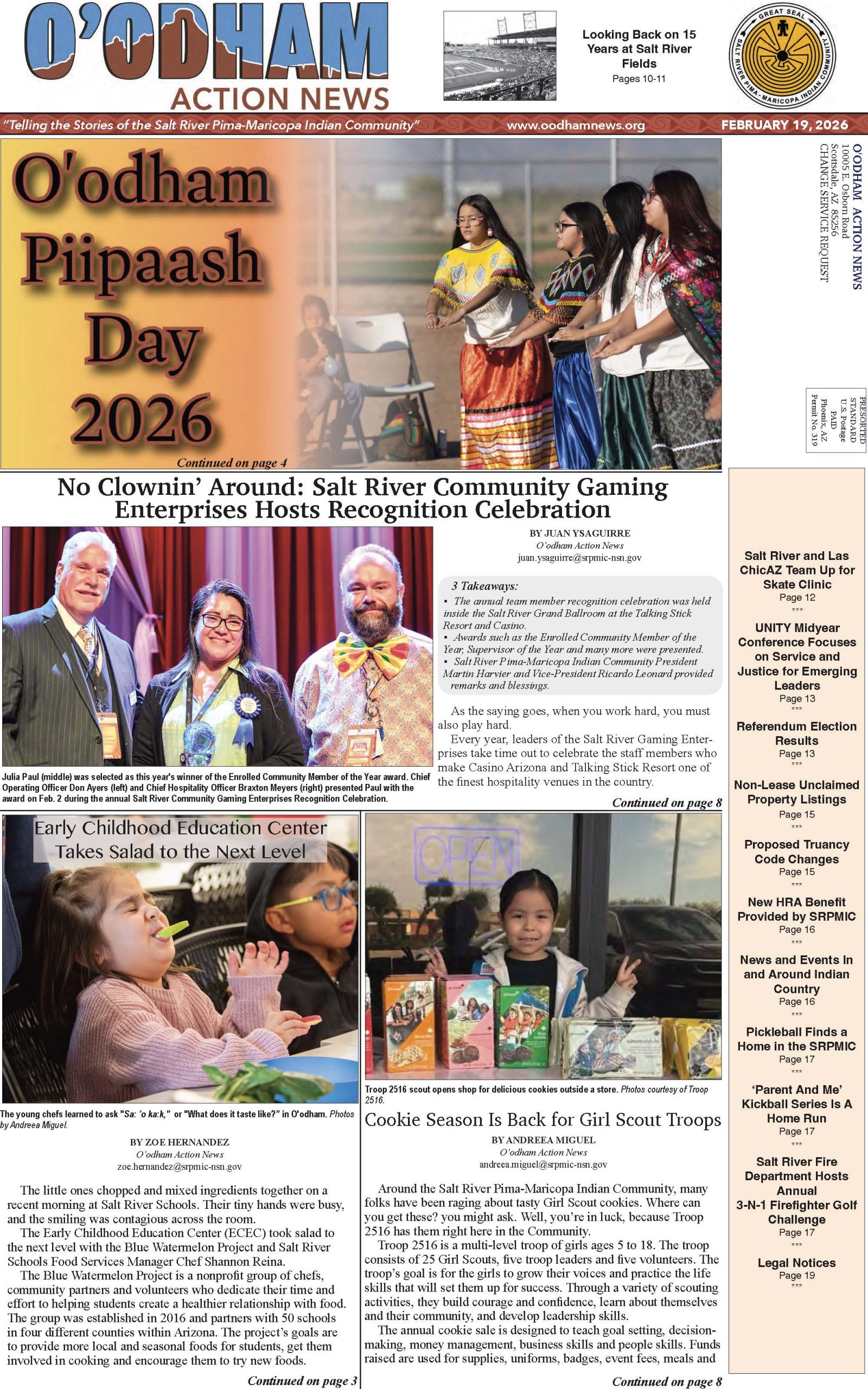VIEWS: 1217
April 2, 2025Walking in Tradition, Anchored in Culture: 2025 National Native American HIV/AIDS Awareness Day
O’odham Action News continues to remain at the forefront of helping end the public stigma against HIV/AIDS, especially in Indian Country.
This year, National Native American HIV/AIDS Awareness Day takes place on March 20, the first day of the spring season. The commemorative day was established in 2007 by three collaborating agencies: the National Native Capacity Building Assistance Network, Inter Tribal Council of Arizona and the National Native American AIDS Prevention Center.
The first day of spring was chosen after many discussions and a national survey was sent out to members in Indian Country. This year’s theme is: “Walking in Tradition, Anchored in Culture.”
“This year’s theme highlights the resilience and healing that come from being deeply rooted in our cultures as Native people,” said Devona Bradford, of the National Native HIV Network, via press release. “When we walk in tradition and anchor ourselves in cultural values, we strengthen our communities and move closer to ending the HIV epidemic in Indian Country.”
HIV, or Human Immunodeficiency Virus, is a virus that affects the body’s immune system. If not treated, HIV can lead to a diagnosis of AIDS. The only way for people to know their HIV status is to get tested. People don’t “catch AIDS,” they “contract HIV.”
The virus can be spread through blood-to-blood contact. Simple gestures like handshakes and hugs do not spread the virus.
In 2022, the Center for Disease Control published statistics that showed for every 100 Indigenous people living in the United States, 77 of them know their HIV status, leaving 23 individuals that do not. In comparison to other groups, such as Hispanic/Latino/white, the Indigenous population have the least number of individuals that know their status.
Due to statistics, prevention has been considered as the number one component of ending HIV. To help remain safe, it is recommended that individuals follow the ABCs of HIV prevention.
A – Abstinence: avoiding sexual contact prevents sexually transmitted diseases
B – Be faithful: Monogamy or keeping sexual activity within a group of tested and trusted individuals.
C – Condom usage – A properly used condom is 97% effective
Additionally, the River People Health Center in the SRPMIC provides free public health kiosks that carry an assortment of public health-approved items such as condoms, fentanyl test strips, an RX destroyer (disposes of any medications in pill form), test strips for xylazine (a harmful tranquilizer found in illegal drugs), COVID-19 antigen tests, Narcan (naloxone HCl) and “Test My Drink,” which tests for the presence of date-rape drugs in beverages. The health kiosks are not monitored, but the SRPMIC does maintain an inventory of all supplies inside the kiosks.
Furthermore, individuals living with HIV/AIDS in Pinal and/or Maricopa County are eligible to receive services from PositivelyYou, an Arizona-based organization that is trying to eradicate HIV by 2030.
The organization was highlighted in the January 2024 edition of O’odham Action News when Josmar Escobar shared his story with staff and membership during a SRPMIC Health and Human Services Suicide Prevention and Intervention webinar session hosted by Community Health Educator Vurlene Notsinneh-Bowekaty.
PositivelyYou helps those living with HIV/AIDS by connecting them with health/medical services, case management, dental coverage, transportation, medication assistance programs, and more. The organization assists in rent and utilities assistance, in addition to testing services throughout Pinal and Maricopa County.
Services by PositivelyYou are assisted by the Ryan White Program. Ryan White was an Indiana teenager who was exposed to contaminated blood during treatment and later became a spokesperson for HIV/AIDs education. The program provides HIV/AIDS medical and support services to people living with the disease that cannot afford treatment, are uninsured or under-insured. White died in 1990 and the program is named in their honor.
Thankfully, living with HIV is not a death sentence. There are resources, healthcare providers, and support available in Arizona. More information on resources for HIV/AIDS is available at the PositivelyYou website, https://positivelyyouaz.com.







